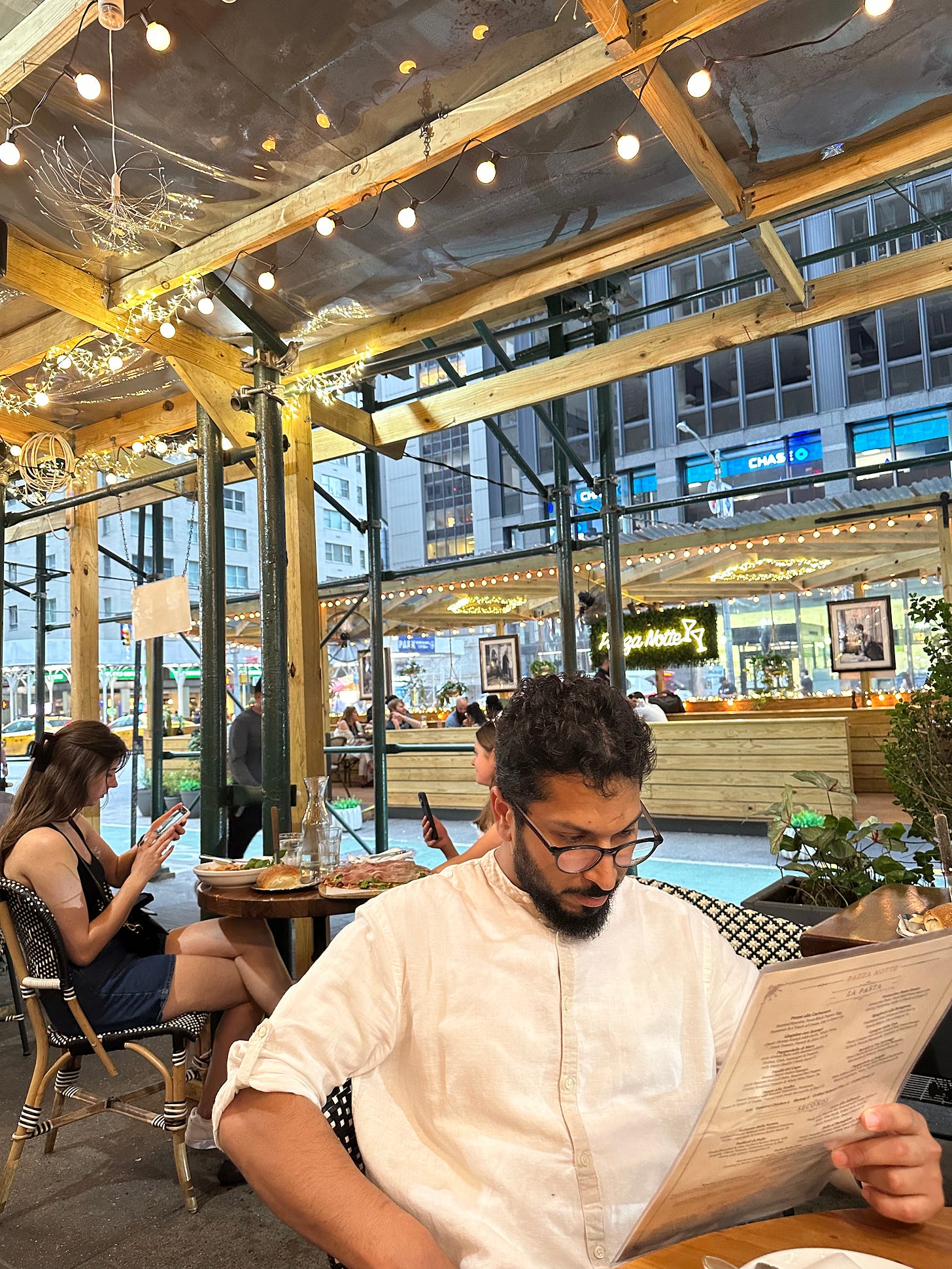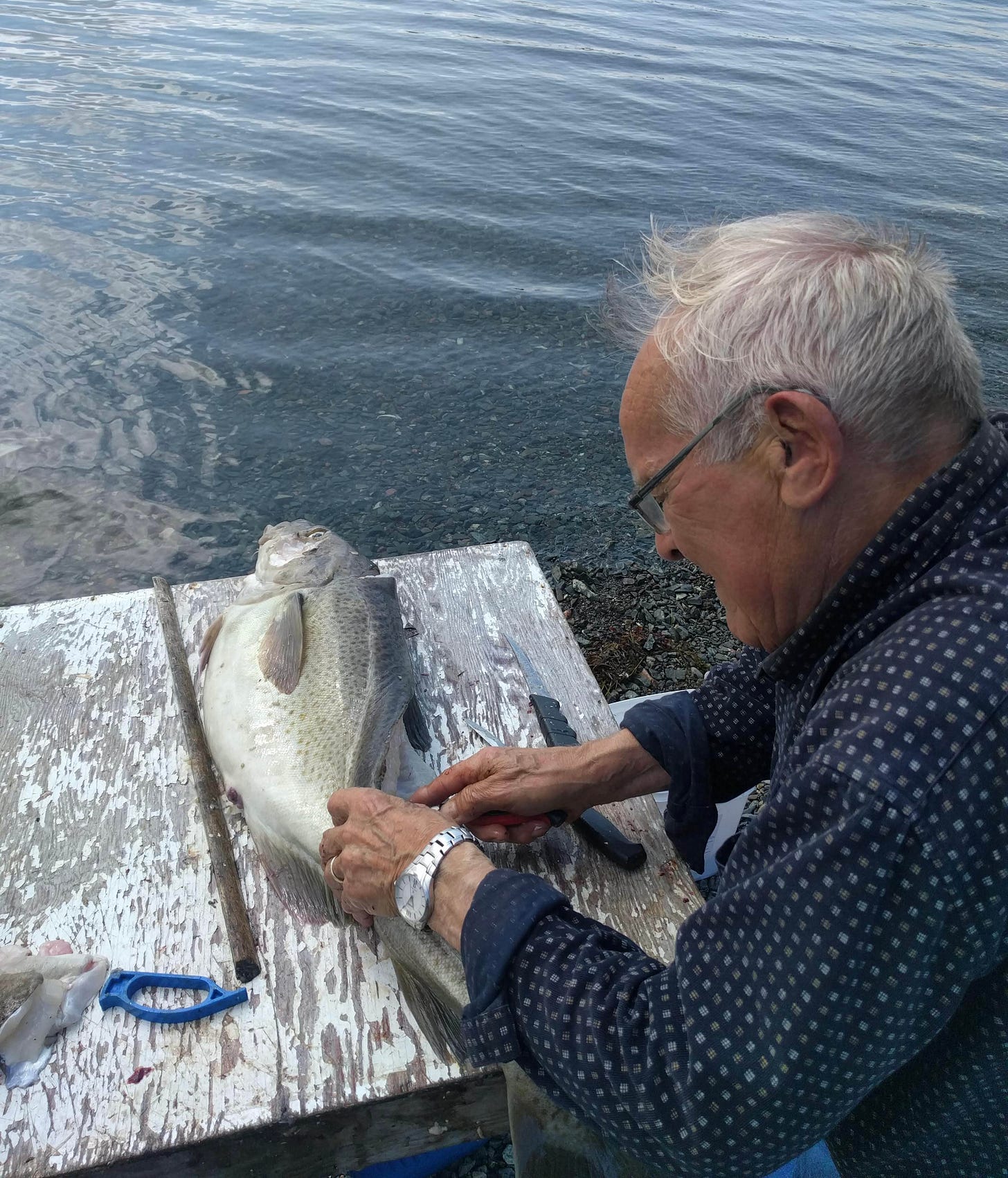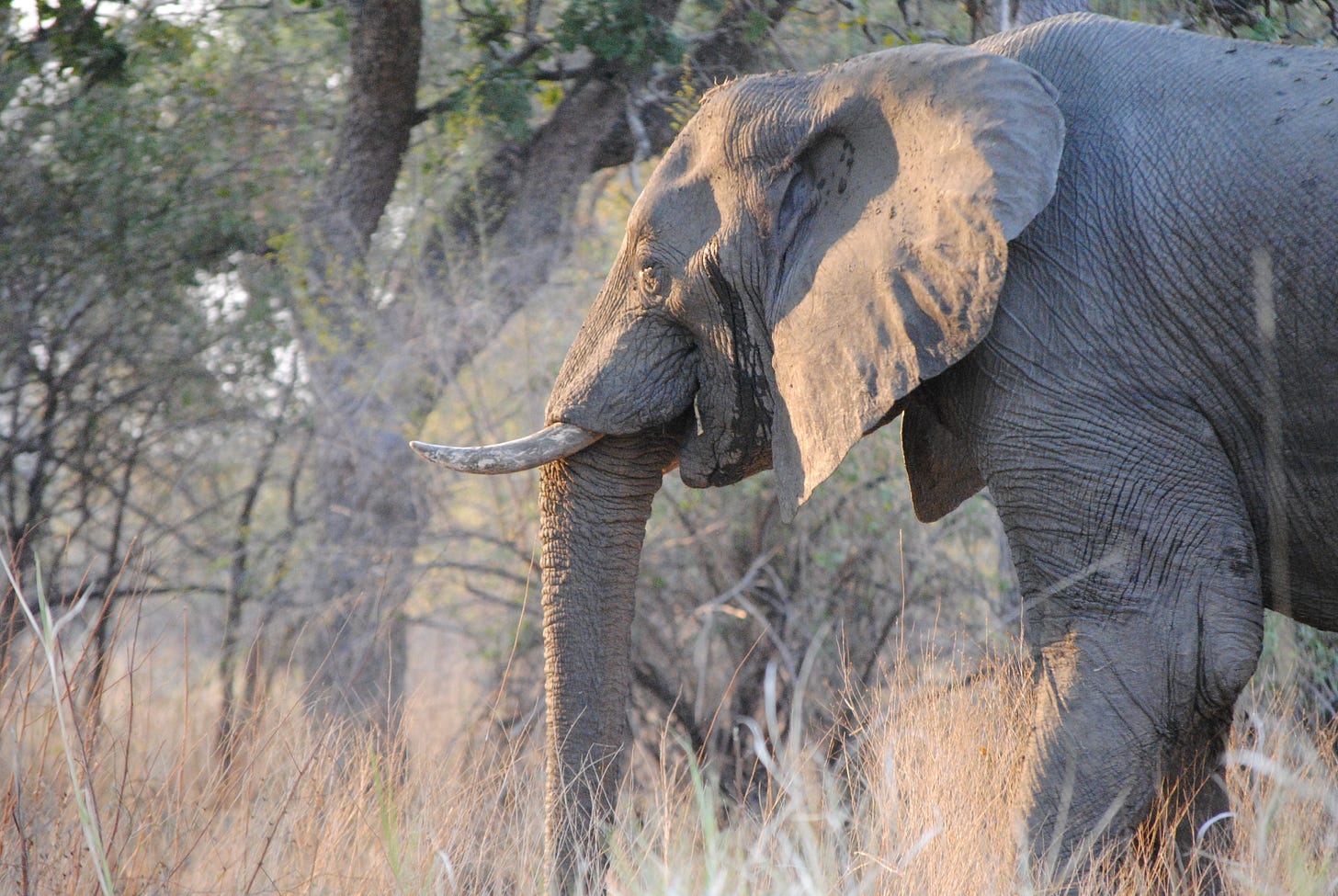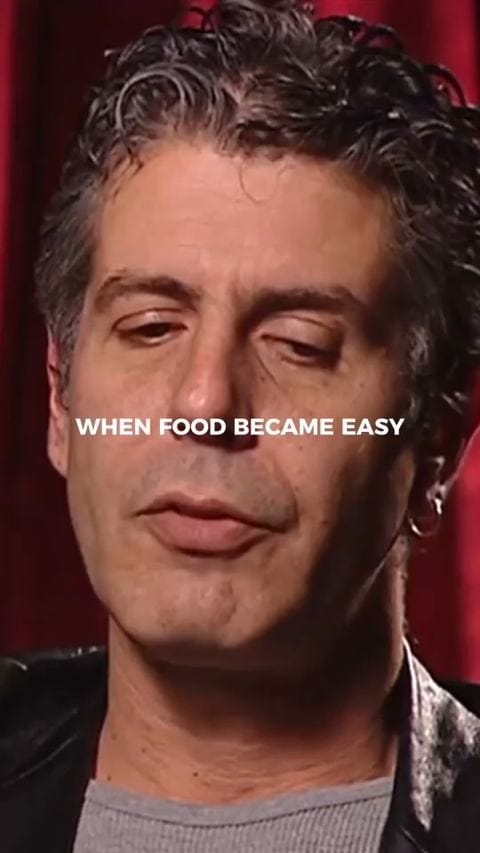In Search of Wildness and Wellness
Acutely God - Chronically Ill
Life is lived in seasons. Especially where I come from. Fall is nearly perfect, the Winters are dark and long, Spring comes and goes in the blink of an eye, and there is nothing like a Maritime summer.
On the Summer Solstice this year, as it happens, we lost Fred Best - one of two patriarchs of my father’s hometown in rural-Eastern Newfoundland. The other was my namesake and grandfather, George Martin, and Fred Best lived right next door, on Leslie Drive. Fred was a man-about-town, if town was a marsh, brook, bog, mountain, or cove - rarely to be seen in a chair, unless to have a chat. Puttering is somehow not strong enough a word to describe what Fred did. Always on foot, always tinkering with something, always on the go. Not particularly fast and, in his old age, quite the opposite - but quietly determined and nearly constant.
Fred had a passion for wild places that goes beyond words. It was instinctual. It wasn’t a choice. It was a calling, and Fred listened to the call for the overwhelming majority of his days - well into old age. It wasn’t until Fred was in his 70s that his snow machine went through the ice on George’s pond. Luckily he was a small enough man to slowly hop off and go about his business figuring out how to get the machine un-stuck and un-sinking.
The evening before Fred’s passing, I was called back to my bookshelf, at home on the main-land, and picked up Craig Foster’s Amphibious Soul. I come back to the same books often - much better to re-read the 100 best books ever written than to read 10,000 of the latest.
I had just finished Coming Into the Country, John McPhee’s epic on Alaska - what it is, what it means, and where it’s going. Another book that Fred could easily have become a character in, if John had decided to go East instead of West. Perhaps I somehow knew that Freddy would go in the morning, and he was reminding me that nature is as nature does. There ain’t no stopping this train.
Crawling back through my personal archives, I realized that I first read Craig’s book at this exact time last year - as Kathryn and I prepared to go to our beloved Chamcook Lake for long summer days in the sun. Perhaps my instincts were attuned to that fact - that we’d soon be going to the lake - because I reached for Amphibious Soul again, and still can’t put it down. It’s marked up with marginalia - I can’t seem to help but make a menu of my books - in the same way that George did.
Both Coming Into the Country and Amphibious Soul deal with the paradox of modern life - wonderful developments in technology, security, and life expectancy, and yet a near complete detachment from the natural world, and each other, that has led to chronic illness of a kind we could never have imagined only 100 years ago. Acutely, we’re God-like. Chronically, we’re never been sicker.
I certainly don’t discount the former - I’ve been on the receiving end of our miraculous abilities of acute medicine. When my heart was inflamed and infected in the winter of 2020, it took my local medical team all of 5 days to get me from on-my-back-with-morphine in intensive care, to at home, slowly recovering. Miraculous. But we also can’t ignore that while we have these God-like sick-care abilities, we can’t seem to keep ourselves well. And indeed, our long-term health is our responsibility, and ours alone. We get many more life years than we did in the past, but our healthy years are curiously in decline.
There is a social/cultural nuance here that made it clear to me how lost we are. On the other side of a very-bad-time-indeed, you tend to learn something about yourself and how you move through the world. It occurred to me at the time, looking out of a lonely hospital room in the middle of January, that I had no sense of balance. I preferred excitement over consistency, and had all the conviction a young man could muster, but had little-to-no credibility. I wanted things before my time. I hadn’t earned it. I hadn’t made the deep relationships necessary to do anything at all, really. At some point my body said no, and it flipped the switch. My conscious mind was too stupid to rest, so my sub-conscious mind ensured that rest was the only thing possible. Nature doesn’t make mistakes.
A lesson isn’t learned until it’s implemented and so the next step was to go out into the world and do something about all of this. It took a long time, but eventually I did, and I now find myself in a position of great health and wellness (relatively speaking).
Here’s the irony - as you do that - as you commit to that path, as you take back your health and find a sense of slowness, balance, rhythm, and community, you start to feel foreign to some of your peers. Slightly alien in some way. Slowly but surely, a sense of separation creeps in, until the epiphany hits you like a ton of bricks - trying to get well in a sick culture is incredibly hard. Almost impossible in some contexts, and my heart goes out to the folks in that situation.
In late-stage capitalism (still probably the best system yet - but far from perfect) everything is stacked against you. Infinite dopamine on the cheap. Post-work beers and pizza. Pesticide everything. Caffeine addiction and work-busyness as a measure of self-worth and success. Social media to communicate your perfection. It’s hard to describe the feeling, but it’s somewhere in the neighbourhood of your father-in-law telling you that “…Jesus, you eat the weirdest food..” because you dared to eat a mango at the dinner table. A MANGO! We’ve lost ourselves to such a degree that a deliciously hydrating tropical fruit is seen as intensely bizarre.
Here’s the rub - when you live the average life of constant consumption and sickness in the West, you’re one of many, and nobody bats an eye. Multiple medications but no behaviour change? Perfectly acceptable. When you politely decline, in favour of something more, you’re immediately (and obviously) different. When you speak on it (even worse!) you’re Undesirable #1. We’re the culture that asks if you’re okay if you don’t ply yourself with alcohol.
But there is a movement afoot that has recognized this and simply isn’t satisfied. We’re hitting rock bottom, and that’s a good thing. The health crisis isn’t coming, it’s already here and folks aren’t happy with the results. We’re coming back to ourselves, to our work, and to our communities - a Great Remembering.
The old lads and ladies, like Fred Best, George Martin, and Beryl Kirkpatrick were robust in a way that we can hardly imagine now, because they never forgot. Gord Tilley, one of my grandfathers closest friends got his beets in the ground last week, stewarding his garden at the over-ripe age of 97. My father’s aunt Myrtle passed, after a morning of light exercise with friends, at 102. Uncle Gerard learned how not to ride a camel at 87, and Fred Best was on foot on the marsh into his 80s - deep-sea fishing from his aft-perch in his fishing boat for many more when he couldn’t hike to the fresh water ponds.

Let’s dig in to nature, food, each other, and what happened to us along the way.
“That definition of freedom rarely seems to lead to happiness, or contentment, or peace.” - Chris Arnade
In Search of Wildness and Wellness
The Introduction to Craig’s book - that sacred and important Introduction section - is called ‘In Search of Wildness’ - and begins in the Okavango Delta in Northern Botswana. I had caught a glimpse of African bigness and wildness in Southern Zambia some ten years ago, and it teems with life - just like the places Fred Best enjoyed most.
It’s wild in a way we can hardly fathom.
“Still, despite the risks, I felt the pull to be closer, to feel…wildness, to understand.” - Foster
Craig’s experience as a documentary filmmaker in Africa led to encounter with some remarkable humans who had not lost contact with the natural world. Who were not separate from it and had access to the sense of bigness and wellness that alludes us in modern life.
“During that time I also felt a deep sadness, a yearning. I could not put my finger on the source…The yearning was more acute around people who knew nature intimately…I was behind the camera, always a watcher, an outsider, while they were in intimate communication with wildness.”
Intuitively, Craig knew that there were others like him - suffering and feeling a sense of disconnection that was not easy to put in words - because it was new in the context of long-history. Our entire evolutionary past was spent in the bosom of Mother Nature, not ChatGPT.
“…I saw people suffering from their disconnection from nature. I sensed intuitively that living in harmony with the wild is humanity’s natural state…and yet so much of the modern world seems designed to cut our species off from the nourishment that nature has provided for all our existence.”
Because I’m an economic development junky - this particularly modern disease probably starts with organized, settled farming - when we stopped moving around nomadically in small, tight-knit groups. Although we were still connected to the cycles of nature and were at her mercy almost entirely, over time we mechanized it and technolosized it and commoditized it into something that would be unrecognizable to early humans who simply worked with what was on offer in the wild. Accelerationism kicked into hyper-drive in the Industrial Revolution - after we discovered steam engines and how burning coal made us go whoosh.
“It's so obvious to me what a horribly destructive direction we are headed in; I scratch my head about why it's not as obvious to everyone else. I guess it's because our entire economy and society incentivizes all of us, including me, not to take the thirty-thousand-foot-view.” - Will Harris
Now, don’t misunderstand me - I don’t opine for the days when we had to go looking for our daily calories. I don’t even know how to properly imagine that state because I’m a product of the 21st century. I sit here in a cafe, with a wonderful espresso and breakfast sandwich that I did absolutely nothing to acquire. But one of the consequences of humans settling down and advancing technologically was a relationship with the world and with each other that has left us vacant somehow.
Despair, as it turns out, is not economic - it’s what happens when humans are no longer in relationship with each other and with the natural world and with their communities.
“…building healthy cities is currently more important than building a stronger economy…” -Chris Arnade
Craig and his team had the rare opportunity to film a documentary called The Great Dance with San master trackers in the Kalahari, and were floored by the difference between someone like Xhloase Xhhokne, and themselves.
“I looked down at my soft hands holding my camera, and then I looked at his hands. His palms were covered with half a centimetre of hard callus…from sustained work in nature.”
You can see glimpses of this recent past in those that spend a full-life working outdoors - a robustness, a sense of chronic wellness, and perpetual sun tan that stays even in the winter months (this turns out to be a very good thing because melanin seems to play a similar role to Vitamin D in the absence of sunlight). This sense of wellness often manifests in the form of joie-de-vivre - even in work. Perhaps especially in work.
“…he laughed, not because anything was funny, but because there was joy inside him.”
This imprinted on Craig’s psyche like a message in a bottle from a far distant past - because, in essence, that’s exactly what it is. A message in a bottle that we can see and hear and touch. An echo of some kind that we understand intuitively.
“I’ll never forget his laughter, the smile that appeared like the sun on his face, and his strong calloused hands…I’d spent too much time indoors editing film for up to sixteen hours a day. My hands were soft, my heart was fragile, my smile was fading, and that wild creature as cowering deep inside, with hardly any light to guide its way out. This tameness felt like a kind of death to me…a dishonouring of my wild heritage.”
The Rememberers - from our last essay - like Laird Hamilton and Case Bradford remind us that joy is our birthright because we were born to the only planet we’re aware of that can sustain this kind of life. Miraculous.
Alas, all is not well. The kids are not alright. We are not alright. And it takes courage to admit that. Our expertise, our comfort, our technology, and our progress-at-all-costs has done nothing to protect us from our most basic social, emotional, and spiritual needs. We fancy ourselves as having the world’s leading ‘experts,’ science, double-blind placebo tests, and we’ve done every study under the sun - yet we’re the sickest people on earth. What exactly has this obsession with expertise won us? We’ve printed more prescriptions than we have college degrees.
Luke and Jill on Belding Hill
A tangible way of thinking about our current predicament, and the best way to begin taking back our health is perhaps food - how we grow it, move it, store it, cook it, eat it, and the story it tells.
I’ll try to lay it out in a way that makes sense to me and helped me take back my health, after I had created an environment and a way of life where health was impossible.
My first aha came from the growing of the food, which I had never been exposed to beyond summer berry, or fall apple picking. Food, I realized much later, is simply a manifestation of light - photosynthesis is the process on earth whereby all things come into being. That’s why seasonality matters. Your body uses food like a barcode scanner - if it’s a mango going in your mouth then the signal to your body is that it’s summer, the sun is hot and high, and so the body needs cooling and metabolism should increase. If it’s a high-fat, high-protein diet that is available, like in our Northern winters, the body signals it’s heating mechanisms and brown-fat development to keep us warm and healthy through the difficult period of low light. No wonder we have an autoimmunity crisis and our collective basal body temperature is going down.
How we move food and store it now becomes important because we either need to capitalize on it when it’s fresh, or jar it, dry it, or pickle it for when it isn’t readily available naturally. That’s why soups, compotes, dried fruits or fish, and certain cheeses are good for us in the winter time. In the summer, it’s about freshness and quality - like the month or two when the Italians harvest fresh tomatoes. Those periods are seen as sacred, because they are sacred, and they always were sacred - before we forgot.
Most of us in the West have become entirely detached from the food-chain, and the intuition we once had about what is good for us and what isn’t. Craig learned that Xhloase Xhhokne and his people understand nourishment at a fundamental, intuitive level.
“After the kill, he ate the liver - the hunter’s portion - much-needed energy after walking so far.”
We, on the other hand, traded grass-fed liver for 15-ingredient protein bars because we believe it to be advanced nutrition. That healthy and good means more and so we do more science, learn more facts, and make more stuff. For the average human, modern health is subtraction, not addition. We don’t need more information and more ingredients, we need less of almost everything. The only food advice the average person needs is ‘eat plants and animals.’
Luke and Jill on Belding Hill helped me understand the current plight of regenerative food producers more than anyone because it was the first time I could see it, smell it, touch it, and taste it.
Luke and Jill come from a lineage of farmers that stretches back generations, and have been tracking what has changed over time. I learned that regenerative farming is basically impossible to sustain financially if you don’t own the land outright. Land has become expensive and large-scale, subsidized farming interests have taken over.
I learned that it’s incredibly expensive to harvest the amazing animals you raise without running your own butchering operation - something Will Harris learned as well, further South in Georgia. Small scale is almost impossible without the desire to grow (accelerationism again) - the plight of startup companies of all kinds. The death zone isn’t the first customers or fundraising round, it’s that nowhere place around 10-20 employees and $1M in revenue.
I learned that feed costs mean that the cost of grass-fed beef to the consumer must be higher than places like Costco, but the modern consumer can only see the price tag. We’ve been trained to think of cost in dollars and dollars only.
Food is now fast, and so we don’t cook it and eat it in our homes, together around a feasting table. It’s something we simply cram into our bodies before busily moving from one must-do to another must-do. We count calories and macros, believing that that’s health, and so we default to the protein bar or shake mix that is quick, easy, and available 12-months a year, instead of the fresh tomatoes, with basil, burrata, olive oil, salt and pepper, and a conversation with our spouse. We somehow believe it has to be this way - as if our cultural fate is decided by someone other than ourselves.
I understand the problem here, and I’m sympathetic to it. Changing your way of life means being different, and being different is scary. To be a leader is to accept how other people see you - as different or strange - if you believe in something deeply enough to do so. The reality is there are thousands on thousands of people in the exact same scenario as you are, praying that someone will go first and say enough. I don’t accept that this is how it has to be. I don’t accept the frantic doing and accumulating and more-ness. I want to slow down, I want work to be meaningful, and I want to be dependent on my community in a way that I always have been, naturally.
Communal food is something you need to experience to truly understand. It won’t seem real in a Substack essay, and you won’t take anyones word for it, because it’s 10x as magical as you think it ever could be if you haven’t felt it and experienced it.
I’m not saying I have the way, but I am saying I have discovered a way, and you’re welcome at my table any time. I’ll feed you, share an espresso with you, and listen to your news of the day. It would be my honour.

All we need is a point of view, a set of tools, and a lot of time.
See you on the road.
“There is another freedom, that many around the world still strive for, which comes from being part of a community, and understanding you cannot micromanage every part of your life, and every part of your desire.” - Chris Arnade








